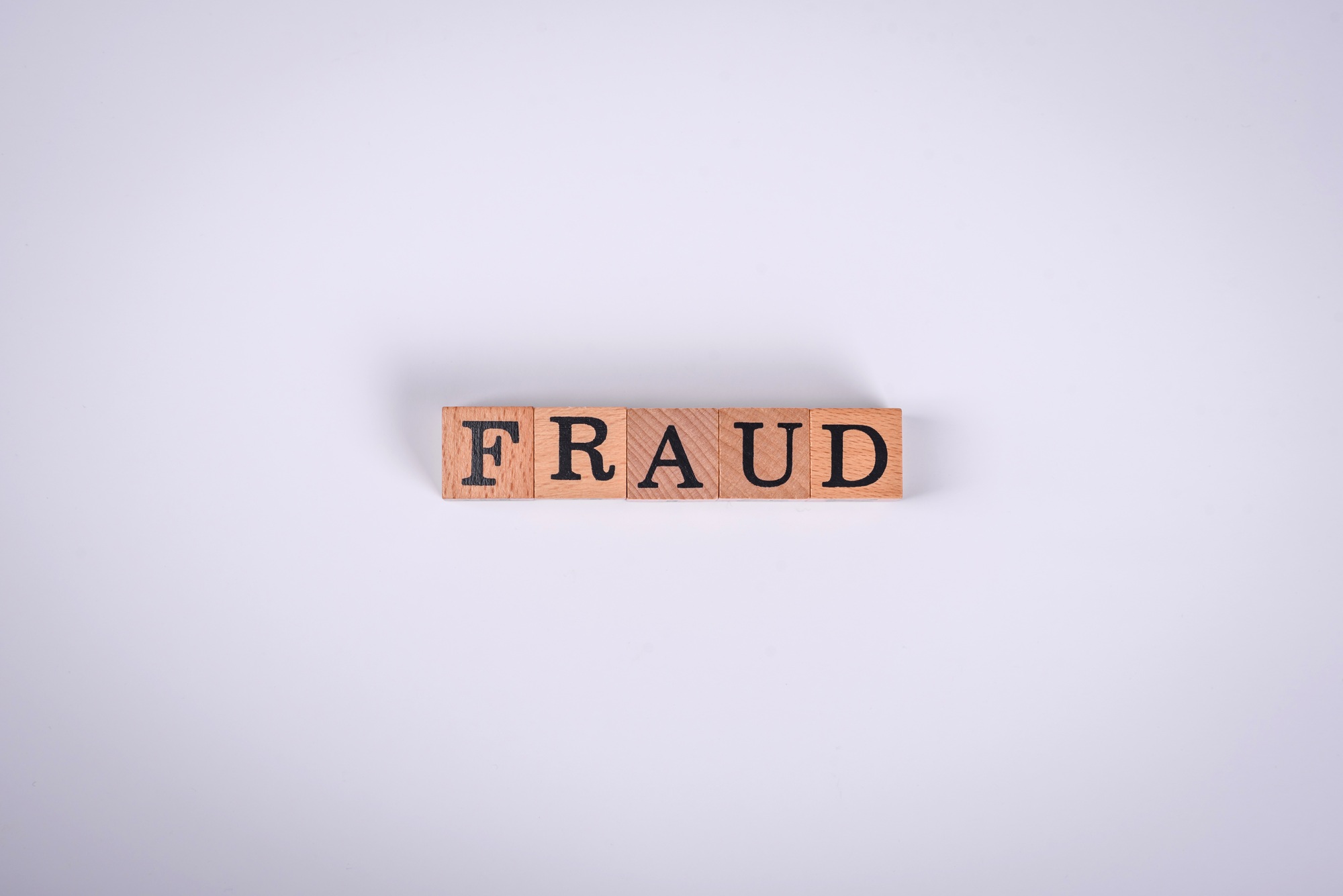Key Takeaways

- Recognize Common Scams: Understand the various types of scams, such as phishing, business opportunity, and tech support scams, to better identify potential threats.
- Identify Warning Signs: Be alert to unsolicited communications, pressure tactics, offers that seem too good to be true, and poor grammar, as these can indicate scams.
- Act Quickly: If you fall victim to a scam, gather all related information, report it to law enforcement and your financial institution, and notify organizations like the FTC and BBB.
- Educate Yourself and Your Team: Stay informed about current scams and best practices for cybersecurity by attending workshops and utilizing reliable resources from organizations like the FTC.
- Utilize Technology: Implement security measures such as software, firewalls, and two-factor authentication to help protect against future scams.
- Seek Support: Acknowledge the emotional impact of being scammed, seek support from colleagues or professionals, and utilize resources for victims to help regain control.
Getting scammed can feel like a punch to the gut. Whether it’s a fraudulent online purchase or a phishing email, realizing you’ve been tricked can leave you feeling vulnerable and overwhelmed. You’re not alone—many people fall victim to scams every day. The important thing is to know how to respond quickly and effectively.
Taking swift action is crucial to minimize damage and protect yourself from future scams. From reporting the incident to safeguarding your personal information, knowing the right steps to take can make all the difference. This guide will walk you through the essential actions you should consider if you find yourself in this unfortunate situation, empowering you to regain control and prevent further losses.
Understanding Scams

Scams affect many, including entrepreneurs running a small business. Recognizing common types of scams and their warning signs helps you protect your enterprise from potential losses.
Common Types of Scams
- Phishing Scams: Fraudulent emails or messages that seem to come from legitimate sources solicit sensitive information from you.
- Business Opportunity Scams: False claims about easy money-making ventures target those looking to expand their business.
- Imposter Scams: Scammers impersonate reputable organizations, demanding payments for services not rendered.
- Tech Support Scams: These scams involve callers claiming to be from well-known tech firms, trying to convince you to provide remote access or make payments for non-existent issues.
- Online Marketplace Scams: When buying or selling online, fraudsters may offer fake products or ask for payment outside secure platforms.
Warning Signs of a Scam
- Unsolicited Communications: Receiving unexpected emails, calls, or messages often indicates a scam attempt.
- Pressure Tactics: Scammers frequently create urgency, pushing you to act quickly without thinking.
- Too Good to Be True Offers: Promotions promising unrealistic returns or savings should raise red flags.
- Poor Grammar and Spelling: Many scam communications contain noticeable errors, indicating a lack of professionalism.
- Requests for Personal Information: Avoid sharing sensitive details like bank information or passwords unless you’re sure of the request’s legitimacy.
Immediate Actions to Take

If you’ve been scammed, taking immediate action is essential to mitigate losses, especially for small business owners. Follow these steps carefully to protect your assets and regain control.
Collecting Information
- Gather all relevant details about the scam, including dates, times, and descriptions of communications.
- Record transaction amounts and methods used, such as wire transfers or credit card payments.
- Document any email addresses, phone numbers, or website URLs associated with the scam.
- Preserve copies of any correspondence from the scammer, as this information may be crucial for investigations.
Reporting the Scam
- Report the scam to law enforcement immediately. Providing them with collected information can aid investigations.
- Notify your financial institution, whether a bank or credit union, to stop potential unauthorized transactions and secure your accounts.
- File a complaint with the Federal Trade Commission (FTC) through their online platform or phone hotline.
- Consider reporting the incident to the Better Business Bureau (BBB) to raise awareness among other small business owners.
- Use the Internet Crime Complaint Center (IC3) to report any online scams.
Taking these steps limits damage and helps protect other small businesses from similar threats.
Preventive Measures for the Future

Staying informed and leveraging technology can significantly reduce the risk of falling victim to scams in the future.
Educating Yourself About Scams
Learn about different types of scams that frequently target small businesses, including phishing emails and fake invoices. Attend workshops or webinars focusing on cybersecurity and fraud prevention. Familiarize yourself with red flags that indicate a potential scam, such as urgent language and requests for sensitive information. Use reliable sources like the Federal Trade Commission (FTC) and Small Business Administration (SBA) for up-to-date information on emerging scams. Regularly review these resources to stay vigilant against new tactics.
Utilizing Technology to Protect Yourself
Implement security software and firewalls to safeguard your systems. Regularly update your software to patch vulnerabilities. Use two-factor authentication on your accounts to double your security. Monitor your financial accounts for unusual transactions, and consider employing a fraud detection service. Educate your team on best practices for identifying and avoiding scams, since even a single mistake can lead to significant consequences for your small business.
Seeking Support

Experiencing a scam can leave you feeling vulnerable and overwhelmed, especially for those running a small business. Taking immediate action is crucial to regain control and mitigate damages.
Emotional Impact of Being Scammed
Recognizing the emotional aftermath of being scammed is vital. You might encounter feelings of betrayal, fear, or anxiety regarding your business’s financial health and reputation. Understanding that these feelings are common can foster resilience. It’s essential to discuss your experiences with trusted colleagues or mentors, share coping strategies, and seek professional help if needed. Surrounding yourself with a supportive network can empower you during this challenging time.
Resources for Victims
Several valuable resources exist to assist you if you fall victim to a scam.
- Reporting the Scam: If a scam involves the U.S. Mail, report it to the Postal Inspectors at 1-877-876-2455 and notify your local police. Report scams to the Federal Trade Commission (FTC) through their online reporting form or by calling 1-877-ID-THEFT (1-877-438-4338).
- Credit Bureaus: If identity theft or credit card fraud occurs, contact the three major credit reporting bureaus: Equifax (1-800-525-6285), Experian (1-888-397-3742), and TransUnion (1-800-680-7289). They can help you monitor your credit report and prevent further damage.
- Financial Institutions: Contact your bank or credit card company to report any fraudulent activities. They can assist in closing compromised accounts and flagging your file to thwart additional fraud. Being proactive ensures better protection for your small business finances.
Conclusion
Experiencing a scam can feel overwhelming but remember you’re not alone. Taking swift action is key to minimizing damage and regaining control. By reporting the incident and protecting your personal information, you can not only safeguard yourself but also help others avoid similar pitfalls.
Stay informed about the latest scams and educate yourself on preventive measures. This proactive approach will strengthen your defenses and boost your confidence in navigating the digital landscape. Don’t hesitate to seek support from trusted colleagues or professionals to address the emotional aftermath. With the right steps and resources, you can move forward and protect your business from future threats.
Frequently Asked Questions
What are the emotional effects of being scammed?
Experiencing a scam can lead to feelings of betrayal, anxiety, and fear about one’s financial situation and reputation. Victims often feel overwhelmed and vulnerable but discussing their feelings with trusted colleagues or seeking professional help can aid in healing.
How common are scams targeting individuals and small businesses?
Scams occur frequently, with many individuals and small businesses falling victim daily. Awareness of this prevalence is crucial, as it empowers people to take precautions and recognize potential threats to protect themselves effectively.
What types of scams are outlined in the article?
The article discusses several types of scams, including phishing scams, business opportunity scams, imposter scams, tech support scams, and online marketplace scams. Understanding these categories can help individuals recognize and avoid potential fraud.
What are the warning signs of a scam?
Warning signs include unsolicited communications, high-pressure tactics, offers that seem too good to be true, poor grammar, and requests for personal information. Being aware of these signs is vital in identifying scams and protecting oneself.
What immediate actions should someone take if they are scammed?
Victims should gather relevant information about the scam, report it to law enforcement, notify their financial institutions, and file complaints with the FTC and BBB. These actions can help minimize damage and prevent further fraud.
How can individuals and businesses prevent future scams?
To prevent future scams, individuals should stay informed about common fraud types, educate themselves on red flags, use security software, implement two-factor authentication, and monitor financial accounts for unusual transactions regularly.
What resources are available for scam victims?
Victims can report scams to the Postal Inspectors, FTC, and local police. They should also contact credit bureaus and financial institutions to monitor credit and prevent further harm. Utilizing these resources is essential for recovery.
Why is it important to discuss experiences after being scammed?
Discussing experiences can aid emotional recovery and help victims process their feelings. Sharing experiences with trusted colleagues or mentors provides support and can empower others to recognize and avoid similar scams.
Image Via Envato: chernikovatv, innu_asha84, MargJohnsonVA, voronaman111, DC_Studio



